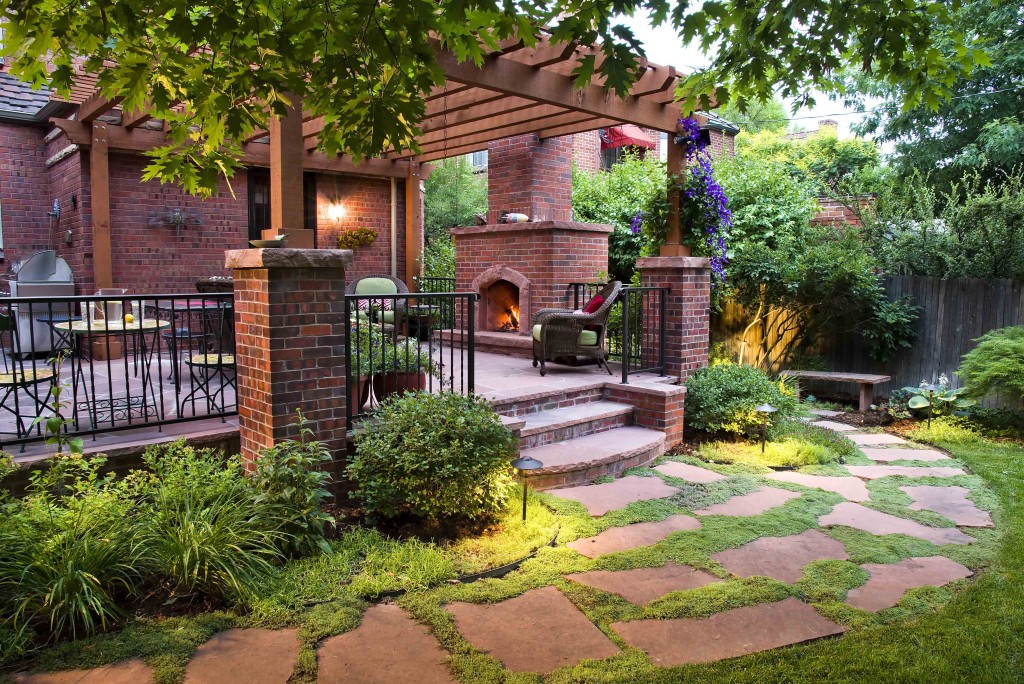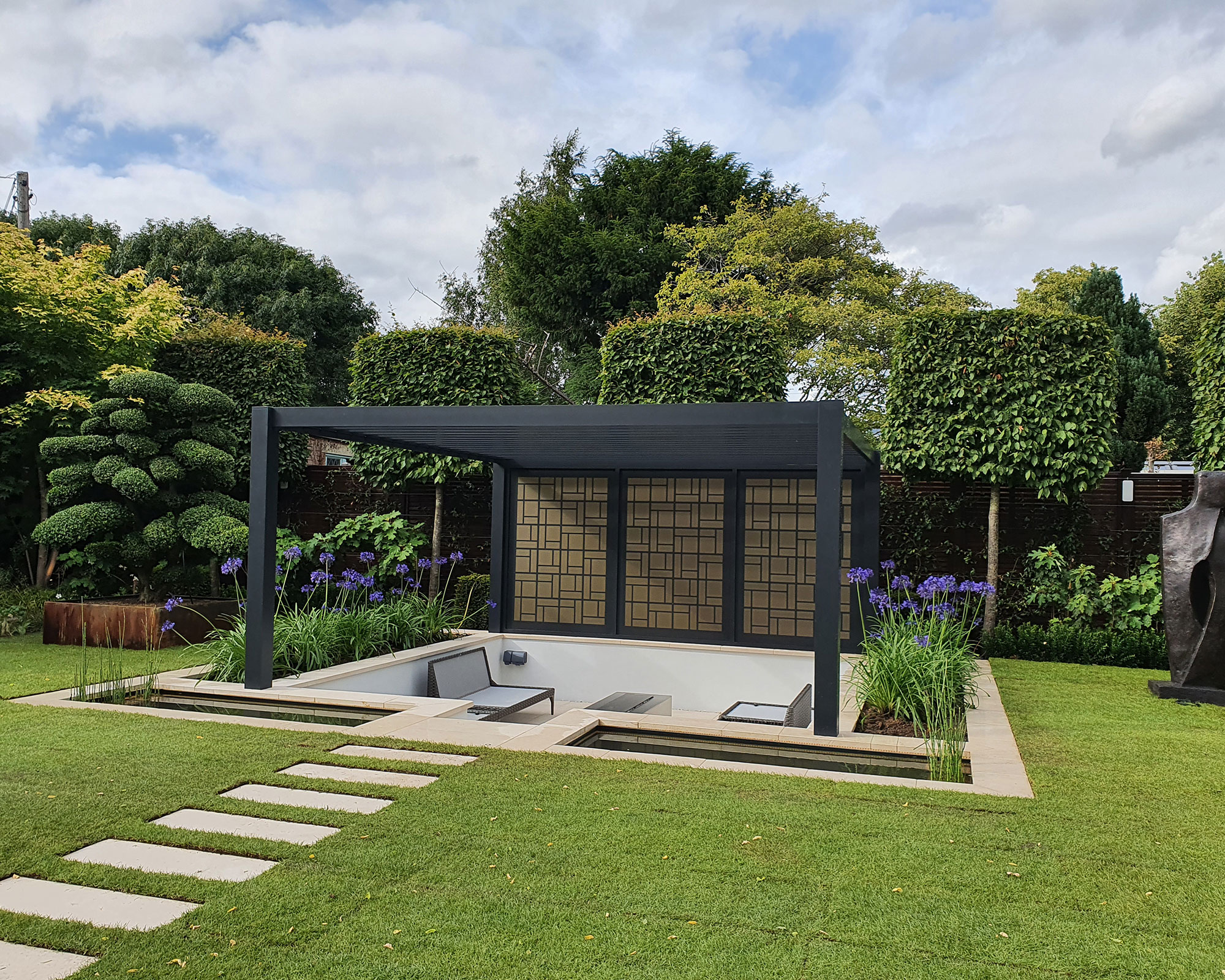The Of Hilton Head Landscapes
The Of Hilton Head Landscapes
Blog Article
Not known Incorrect Statements About Hilton Head Landscapes
Table of ContentsNot known Facts About Hilton Head LandscapesThe Basic Principles Of Hilton Head Landscapes Hilton Head Landscapes Fundamentals ExplainedWhat Does Hilton Head Landscapes Mean?The Ultimate Guide To Hilton Head LandscapesThe Only Guide for Hilton Head LandscapesRumored Buzz on Hilton Head LandscapesThe Definitive Guide to Hilton Head Landscapes
Kind compatibility is additionally a significant part of unity in designone or 2 strikingly different kinds are good for contrast and emphasis, yet typically all various other types should have some similarities for a combined look. Texture refers to how coarse or fine the surface of the plant or hardscape material really feels and/or looks.
Instances of plants with coarse appearance include philodendrons, agaves, bromeliads, hollies, hands, and hydrangeas. Features that produce great structure include little foliage; thin, strappy leaves (lawns) or tall, slim stems; tiny, thick twigs and tiny branches; long stems (vines); and tiny, delicate blossoms.
Our Hilton Head Landscapes PDFs
Most plants are medium structure, in that they can not be explained as having either rugged or fine texture. Medium-textured plants act as a background to link and unify the rugged- and fine-textured plants.

To make a room really feel smaller sized, put the crude appearances along the external boundary and the great appearances closest to the viewer. The information of the crude appearance makes the plants show up closer and makes the area really feel smaller sized. The viewed structure of plants can additionally alter with the range from the plant.
The Facts About Hilton Head Landscapes Uncovered
Bold colors boost the contrast and make the appearance show up coarser, while muted colors can flatten texture. Hardscape with a crude texturesuch as very rough rocks and bold, large timberstends to make all plant product appear more moderate textured. Developers frequently create an appearance research study (Number 8) theoretically to help decide the plan of plant materials.
Number 8. Structure research. Shade in plant material and hardscape includes interest and range to the landscape. Color is one of the most conspicuous component in the landscape and is normally the focus of most property owners; however, it is likewise one of the most momentary element, generally lasting just a few weeks a year for specific plants.
An Unbiased View of Hilton Head Landscapes
An easy summary of the shade wheel includes the 3 key shades of red, blue, and yellow; the 3 additional colors (a mix of two primaries) of green, orange, and violet; and 6 tertiary shades (a mix of one surrounding primary and second shade), such as red-orange. Shade concept describes the partnership of shades per other and just how they need to be made use of in a make-up.

Similar (sometimes called harmonious) shade plans are any type of three to five colors that are nearby on the color wheel, such as red, red-orange, orange, yellow-orange, and yellow, or blue, blue-violet, and violet (landscaping hilton head sc). The shades are related to each other because they commonly include two primaries mixed to develop a secondary and two tertiary colors, which implies they share typical residential or commercial properties
They have a tendency to have high contrast between them. The most typical collections are violet and yellow, red and environment-friendly, and blue and orange. Corresponding shades are usually located normally in blossoms; an usual set is yellow and violet. Color is discovered in the flowers, foliage, bark, and fruit of plants.
The Best Guide To Hilton Head Landscapes
Eco-friendly foliage in all its numerous shades is the leading color by amount, but various other colors record interest much more conveniently due to their high comparison to the color environment-friendly. Color is additionally found in structures, rocks, pavers, wood, and furnishings. Most colors in all-natural materials, such as rock and wood, are commonly low-key and tend to be variants of brown, tan, and light yellow.
Shades have properties that can influence feelings, spatial assumption, light quality, equilibrium, and focus. Trendy shades tend to be relaxing and need to be made use of in locations for leisure and serenity.
Hilton Head Landscapes Fundamentals Explained
The "temperature" of shades can additionally affect the perception of range. Trendy colors often tend to recede and are perceived as being farther away, making a room really feel bigger. Warm colors often tend to advance and are regarded as being better, making a space really feel smaller. Shade can also be made use of to catch attention and straight sights.
For instance, bright yellow, which has the greatest strength, likewise has a high contrast with all other shades (frequently called a "pop" of shade) and need to be conserved. A small quantity of intense shade has as much aesthetic weight as a large amount of an extra suppressed or weak color.
Analogous (sometimes called harmonious) color pattern are any kind of 3 to five colors that are nearby on the color wheel, such as red, red-orange, orange, yellow-orange, and yellow, or blue, blue-violet, and violet. The shades belong to every other due to the fact that they normally consist of 2 primaries blended to create a second and 2 tertiary colors, which suggests they share usual buildings.
Not known Facts About Hilton Head Landscapes
They have a tendency to have high comparison in between them. The most typical collections are violet and yellow, red and environment-friendly, and blue and orange. Complementary shades are typically discovered normally in flowers; a typical pair is yellow and violet. Shade is found in the blossoms, foliage, bark, and fruit of plants.
Green vegetation in all its numerous shades is the leading shade by quantity, yet various other colors record focus quicker due to their high contrast to the color environment-friendly - landscapers in bluffton sc - resource https://qualtricsxm5z596vv95.qualtrics.com/jfe/form/SV_eEczR6xKXKuv6mi. Color is also found in structures, rocks, pavers, timber, and furnishings. The majority of shades in all-natural materials, such as stone and timber, are normally soft and have a tendency to be variations of brownish, tan, and pale yellow
Hilton Head Landscapes for Dummies
Color is a crucial component for creating rate of interest and selection in the landscape. Shades have buildings that can impact feelings, spatial assumption, light top quality, balance, and focus. One home of shade is defined family member to temperaturecolors show up to be great or warm and can impact emotions or sensations. Trendy shades often tend to be soothing and should be used in areas for relaxation and peacefulness.
Awesome colors have a tendency to decline and are viewed as being farther away, making a room really feel bigger. Shade can likewise be utilized to catch attention and direct views - https://4vgontca9bh.typeform.com/to/NcH3QMx6.
As an example, bright yellow, which has the greatest strength, also has a high contrast with all other shades (commonly referred to as a "pop" of color) and should be conserved. A tiny amount of extreme color has as much aesthetic weight as a big quantity of a more restrained or weaker shade.
Report this page